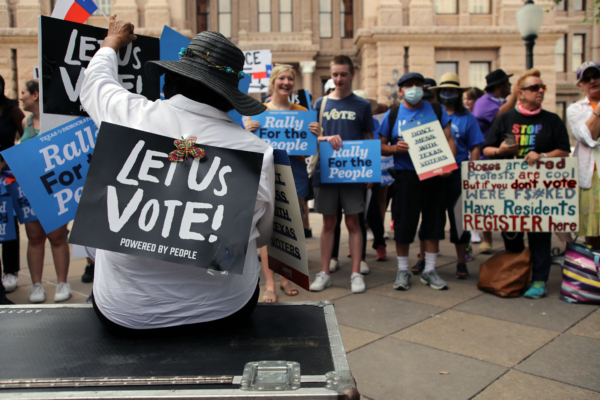DURHAM, NC – Thousands of North Carolinians have been removed from the voter rolls this year with a disproportional impact on people of color, a documented trend that is likely to impact communities’ ability to elect representatives of choice.
Since the 2020 elections, Southern Coalition for Social Justice has been monitoring North Carolina’s voter lists and its massive “no-contact” voter removal process. In 2021, we uncovered North Carolina’s removal of 391,415 voters disproportionately impacted voters of color.
In January/February of this year, North Carolina removed 264,416 voters who were inactive since August 2020. Once again, this year’s removals disproportionately impacted voters self-identifying as Black or African American: Black / African American voters constituted 26.1% of removals while making up just 20.31% of registered voters in North Carolina. This effect was seen throughout the state, but hit areas impacted by disaster relief and along North Carolina’s “Black Belt” in the center-eastern region particularly hard.
Although some of these voters may have genuinely been ineligible to vote, our analysis indicates this process is historically over-inclusive and has removed voters who should stay on voter lists. As we previously reported, an analysis of the 2020 general election showed that at least 2,280 of the voters removed in 2019 tried to cast a provisional ballot in 2020, and over 300 of those were not counted. There are documented mistakes where lawful provisional votes that should count by law are mistakenly rejected.
“North Carolina can, and must, do better to ensure all eligible voters of all backgrounds are able to get and stay registered,” said Hilary Harris Klein, senior counsel for voting rights at SCSJ. “We have compelling evidence that this is not the case, but with common sense improvements to the process, including more reach-out by counties to voters slated for removal, we can get there.”
Given the documented issues with U.S. Postal Service mail deliverability, including the thousands of addresses the U.S. Postal Service does not deliver to (among other issues), it is clear that mail deliverability alone is not a reliable way to tell if a voter has moved from the address they have provided. Additional methods of reaching voters, such as via phone and email, can be used to help voters resolve issues with their mail-in absentee ballots and are needed to ensure only voters who have actually moved from a jurisdiction are removed in this process.
To make these improvements, county boards of elections need more funding and resources to reach these voters. Fully and adequately funded county boards are crucial to ensuring free, fair, safe, and accessible elections for all of North Carolina’s voters.
Click here to view the full report.
Media Contacts:
Andy Li, SCSJ | andy@scsj.org
Melissa Boughton, SCSJ | melissa@scsj.org | 830-481-6901
###
The Southern Coalition for Social Justice, founded in 2007, partners with communities of color and economically disadvantaged communities in the South to defend and advance their political, social, and economic rights through the combination of legal advocacy, research, organizing, and communications. Learn more at southerncoalition.org and follow our work on Twitter, Facebook, and Instagram.

